#regulation
FTC To Examine Auto Dealer Practices
The Federal Trade Commission has announced that it will be holding a series of round table discussions aimed at investigating misleading dealer practices in the areas of sales, financing and leasing. According to the Commission’s release, the round tables will
gather information on consumers’ experiences when buying or leasing motor vehicles. The roundtables will explore consumer protection issues related to the sale, financing, and leasing of the consumer vehicles consumers most often use – cars, SUVs, and light trucks.
For many consumers, buying or leasing a car is their most expensive financial transaction aside from owning a home. With prices averaging more than $28,000 for a new vehicle and $14,000 for a used vehicle from a dealer, most consumers seek to lease or finance the purchase of a new or used car. Financing obtained at a dealership may provide benefits for many consumers, such as convenience, special manufacturer-sponsored programs, access to a variety of banks and financial entities, or access to credit otherwise unavailable to a buyer. Dealer-arranged financing, however, can be a complicated, opaque process and could potentially involve unfair or deceptive practices.
The National Auto Dealer’s Association says [via Automotive News [sub]] it will attend the round tables and represent dealers’ efforts to “increase financial literacy” and “promote regulatory compliance.” Auto dealer finance was one of the only finance sectors exempted from the Consumer Financial Protection Act, despite protests from the Pentagon.
NHTSA Postpones Back-Up Camera Requirement Rule
Thanks to a flood of about 200 comments, NHTSA has delayed final rulemaking for its requirement that all vehicles sold in the US must have back-up cameras. Automotive News [sub] reports the vehicle safety agency released a statement sayingThe public comment period on this safety proposal only recently closed, and NHTSA will be asking Congress for additional time to analyze public comments, complete the rulemaking process and issue a final ruleBut don’t expect NHTSA to drop the proposed rule. An analyst watching the regulatory process tells AN thathe expects the rule to be tweaked to include testing for illumination at night and the time it takes the picture to appear on the display. Overall, though, he said there shouldn’t be any major changes that would cause the ruling to be enacted later than September.The agency says the cheapest option is to connect the camera to a vehicle’s existing video screen at a cost of $58 to $88. Equipping a vehicle that doesn’t already have a screen would cost $159 to $203At an industry-wide cost of $1.9b-$2.7b, that comes to some $20m per life saved (assuming cameras will actually prevent back-up “accidents”). Want to guess what most of those 200 comments have to say about the proposal? Seriously, though, we can only find one…
IIHS Calls For Bumper-Height Regulation
The IIHS’s latest bid for relevance comes in the form of an entirely unshocking revelation: crash a car and an small SUV together, and the car will be more expensive to repair. I know, I know… mind-blowing stuff. And it would be goofy enough if the IIHS had performed these crash tests simply for the data, but in fact the results gave them cause to exhume one of the most asinine crusades in the history of automotive regulation: regulating bumper height. Because, as the IIHS’s Joe Nolan puts it
We picked vehicles from the same manufacturer because we think automakers should at the least pay attention to bumper compatibility across their own fleets. The results show that many don’t.
And why not? Well, maybe because the odds of hitting a vehicle made by the same manufacturer that made your car are so astronomically unlikely that testing “bumper compatibility” let alone calling automakers to task for not paying enough attention to this meaningless metric is the height of self-important stupidity. But of course the IIHS wasn’t going to just leave things there…
Will GOP Victory Kill The Motor Vehicle Safety Act?
European C02 Standards Not So Scary After All
Mazda Lawsuit Brings Shoulder Belt Adoption Debate To Supreme Court
A lawsuit against Mazda is moving to the United States Supreme Court, reports Bloomberg, challenging whether automakers should have been required to install shoulder belts in all of its seats prior to current regulations requiring the improved belting systems took effect in 2007. The case centers on a 2002 accident in which Than Williams was killed when a Jeep Wrangler hit her family’s 1993 Mazda MPV. The Williams MPV had only lap belts because shoulder belts weren’t required by federal law until 2007. A California court has already barred the lawsuit from coming forward, arguing that federal regulations supersede any local rulings, and that then-legal seatbelts should protect manufacturers from personal injury liability. However a recent case casts some doubt on the precedents in the Mazda case…
House Energy And Commerce Committee Approves New NHTSA Fine Cap, "Vehicle Safety User Fee," More
The House Energy And Commerce Committee has passed an amended version of the Motor Vehicle Safety Act that was previously approved by its Subcommittee on Commerce, Trade and Consumer Protection. True to our prediction, longtime auto industry ally Rep John Dingell (D-MI) was able to maintain caps on NHTSA’s fining power at $200m per automaker per defect recall (up from the current cap of $16.4m) and $5m per auto executive per defect, and require that NHTSA inform automakers and allow for an appeal before invoking the “imminent hazard” powers authorized by the bill. Dingell tells Automotive News [sub] that
The bill is going to be a hard one for the industry to accept, but I believe it’s in the public interest and is good overall.
Obama: Dealer Finance Must Be Regulated
President Obama has weighed in on a crucial matter facing legislators attempting to overhaul America’s financial system: whether or not auto dealer finance should be subject to regulation by the new Consumer Protection Agency. Unsurprisingly, he has come down on the side of regulation, specifically echoing concerns voiced earlier by the Pentagon. The National Automobile Dealers Association has vowed to fight attempts to regulate dealer finance.
Statement by President Obama on Financial Reform
Throughout the debate on Wall Street reform, I have urged members of the Senate to fight the efforts of special interests and their lobbyists to weaken consumer protections. An amendment that the Senate will soon consider would do exactly that, undermining strong consumer protections with a special loophole for auto dealer-lenders. This amendment would carve out a special exemption for these lenders that would allow them to inflate rates, insert hidden fees into the fine print of paperwork, and include expensive add-ons that catch purchasers by surprise. This amendment guts provisions that empower consumers with clear information that allows them to make the financial decisions that work best for them and simply encourages misleading sales tactics that hurt American consumers. Unfortunately, countless families – particularly military families – have been the target of these deceptive practices.
Industry, Republicans Attack Proposed Auto Safety Legislation, NHTSA Plays It Cool
Due to scheduling conflicts with a certain island nation’s democratic rituals, CSPAN didn’t have a channel to spare for today’s auto safety legislation hearing before the the House Energy and Commerce subcommittee. Which means your faithful blogger is at the mercy of the mainstream media’s digestive process in this matter. Regardless, it seems clear by now that the legislation has driven the industry back to the Republican bosom, after a period of post-bailout estrangement. These newly-re-allied forces collectively raised concerns about a number of key proposals presented by Rep Henry Waxman’s Motor Vehicle Safety Act of 2010, including the un-capping NHTSA fines, privacy issues relating to “black box” event data recorders, new car sale vehicle fees, pedal clearance standards, and increased regulation of an industry with state-owned competitors.
Motor Vehicle Safety Act of 2010 Unveiled
Senator Jay Rockefeller (D-WV) has introduced a draft version of his Motor Vehicle Safety Act of 2010. As TTAC has reported, the bill contains a number of provisions, including mandated pedal distances, mandatory brake override, keyless ignition standards, vehicle event data recorder standards, transmission configuration standards, increased penalties for recall delays, and much, much more. Hit the jump for a full description of the measures under consideration.
Draft Safety Legislation: $3-$9 New Car Sale Fee, Unlimited Defect Fines, Mandatory Pedal Distances, More
The Detroit Free Press got its hands on draft auto safety legislation drawn up by Senators Waxman and Rockefeller, and aimed at preventing another Toyota recall-style scandal. In addition to mandating brake override systems on all cars sold in the US, The Freep says the bill would require that
[NHTSA] come up with rules for space between the brake and accelerator pedals, gear shift designs and stop-start systems – all problems highlighted by the Toyota probe. Automakers would be required to build vehicles with event data recorders that could be easily read, a step Detroit automakers made several years ago but that Toyota and other foreign brands have resisted.
Despite the Freep’s attempt at making the bill sound like it’s only going to affect Toyota and other non-Detroit automakers, there is plenty in the proposed legislation that could hurt any automaker.
Toyota Lobbying Spend Drops During Recall Crisis
Washington Bans Copper Brakes
When friends of the automobile think about environmental regulation, our minds tend to tend to leap towards emissions. Between energy independence, air quality and the specter of global warming, a number of political agendas focus auto regulations on the tailpipe and drivetrain, driving a number of changes in the industry. But, as the AP reports, engines aren’t the only automotive components that impact the environment. The state of Washington has voted to ban brake pads with more than five percent copper content by 2021, making it the first state in the union to address the accumulation of heavy metals in groundwater through automotive regulation.
California Cool Car Rules Dropped
Remember how the California Air Resources Board was contemplating banning black cars because air conditioning uses so much C02 ( or not)? Well, the madness is over, as The Detroit News reports that California’s proposed “Cool Car” rules are dead. What killed them (besides common sense and the laws of diminishing returns)? Law enforcement, for one, which warned that




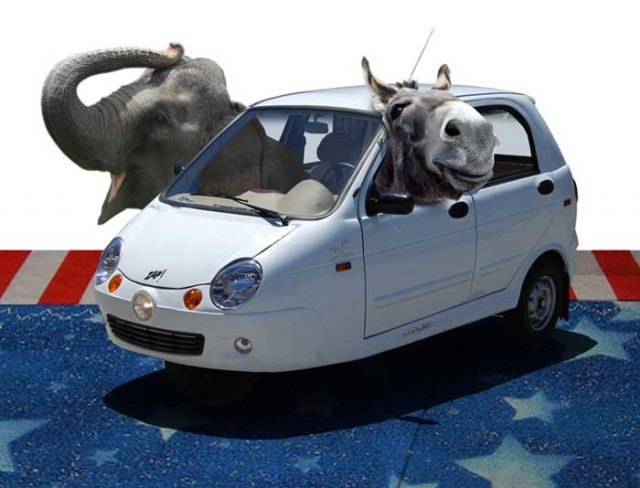
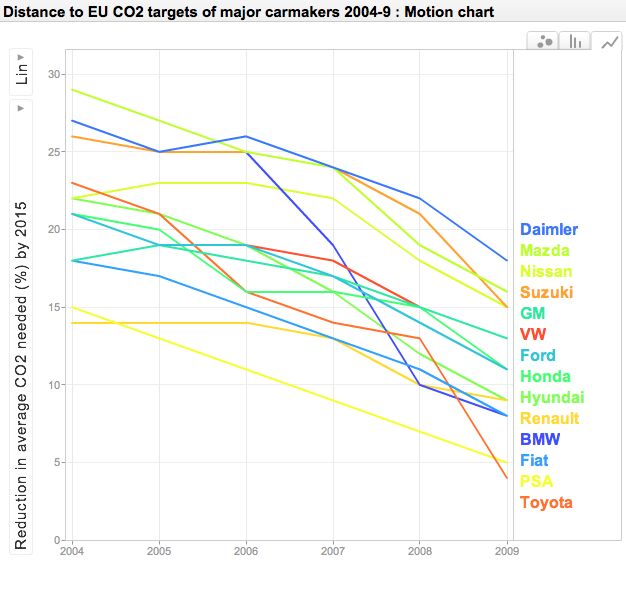

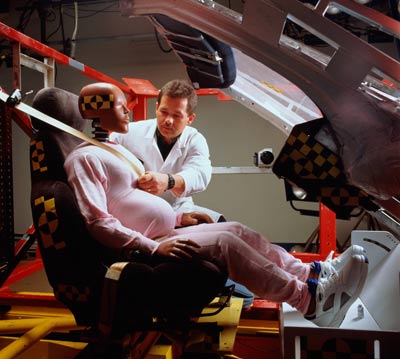
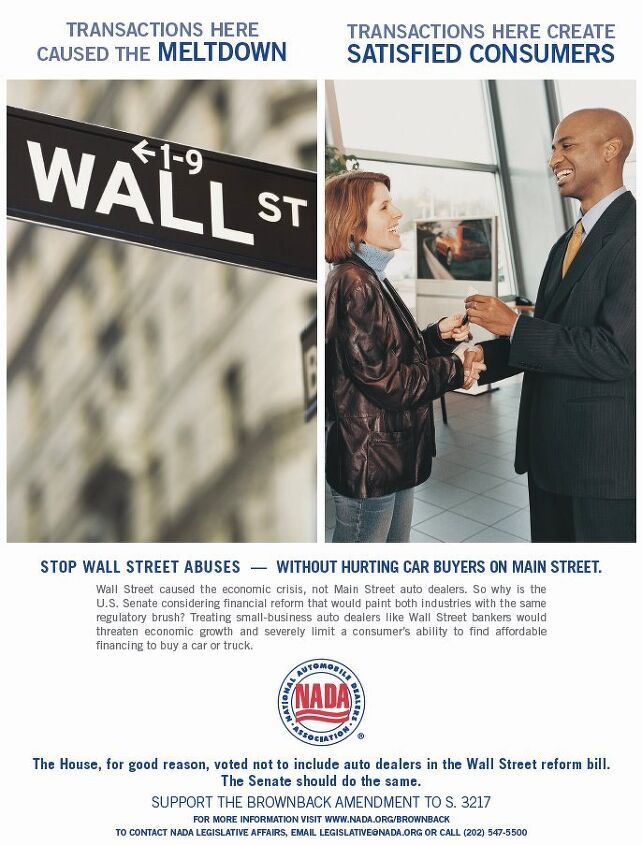
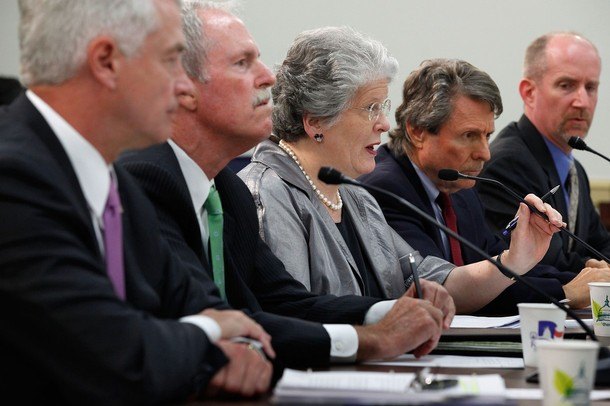
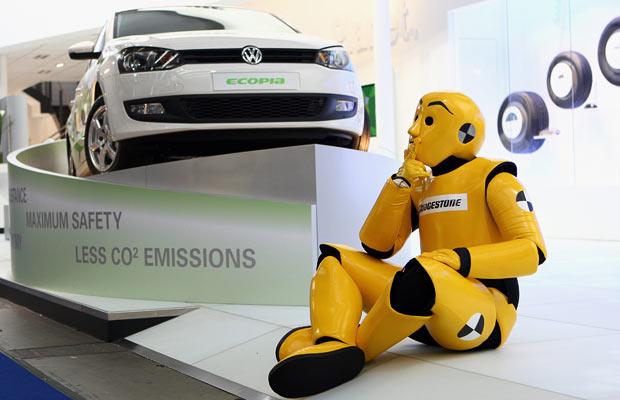

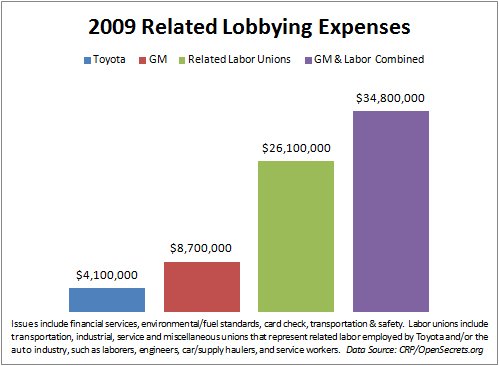
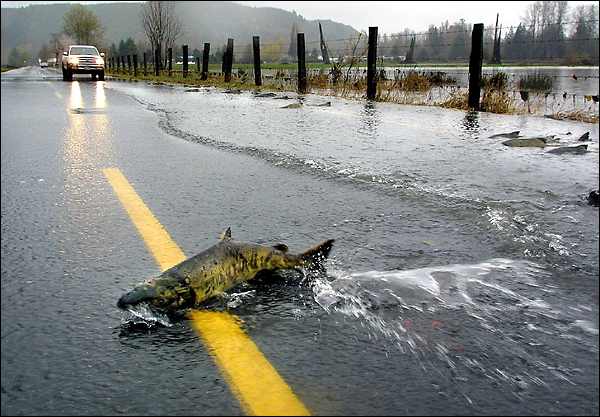
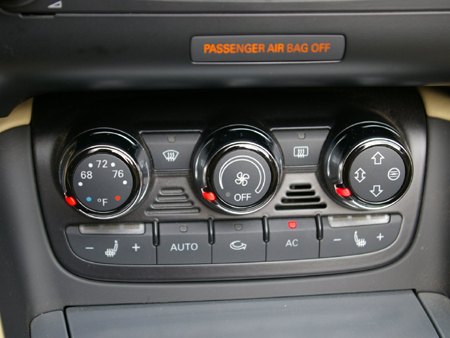












Recent Comments